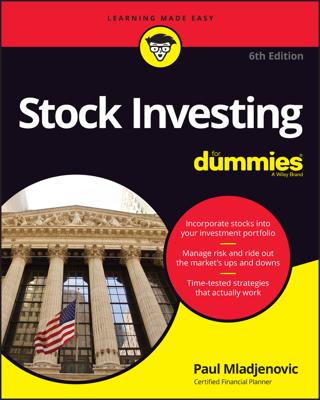A working knowledge of basic economics is crucial to your success and proficiency as a stock investor. The stock market and the economy are joined at the hip. The good (or bad) things that happen to one have a direct effect on the other.
Alas, many investors get lost on basic economic concepts (as do some so-called experts that you see on TV). Understanding basic economics will help you filter the financial news to separate relevant information from the irrelevant in order to make better investment decisions. Be aware of these important economic concepts:
Supply and demand: Supply and demand can be simply stated as the relationship between what’s available (the supply) and what people want and are willing to pay for (the demand). This equation is the main engine of economic activity and is extremely important for your stock investing analysis and decision-making process.
Do you really want to buy stock in a company that makes elephant-foot umbrella stands if you find out that the company has an oversupply and nobody wants to buy them anyway?
Cause and effect: If you pick up a prominent news report and read, “Companies in the table industry are expecting plummeting sales,” do you rush out and invest in companies that sell chairs or manufacture tablecloths? Considering cause and effect is an exercise in logical thinking, and logic is a major component of sound economic thought.
When you read business news, play it out in your mind. What good (or bad) can logically be expected given a certain event or situation? If you’re looking for an effect, you also want to understand the cause. Here are some typical events that can cause a stock’s price to rise:
Positive news reports about a company: The news may report that the company is enjoying success with increased sales or a new product.
Positive news reports about a company’s industry: The media may be highlighting that the industry is poised to do well.
Positive news reports about a company’s customers: Maybe your company is in industry A, but its customers are in industry B. If you see good news about industry B, that may be good news for your stock.
Negative news reports about a company’s competitors: If the competitors are in trouble, their customers may seek alternatives to buy from, including your company.
Economic effects from government actions: Political and governmental actions have economic consequences. As a matter of fact, nothing has a greater effect on investing and economics than government. Government actions usually manifest themselves as taxes, laws, or regulations. They also can take on a more ominous appearance, such as war or the threat of war.
Government can willfully (or even accidentally) cause a company to go bankrupt, disrupt an entire industry, or even cause a depression. Government controls the money supply, credit, and all public securities markets.

